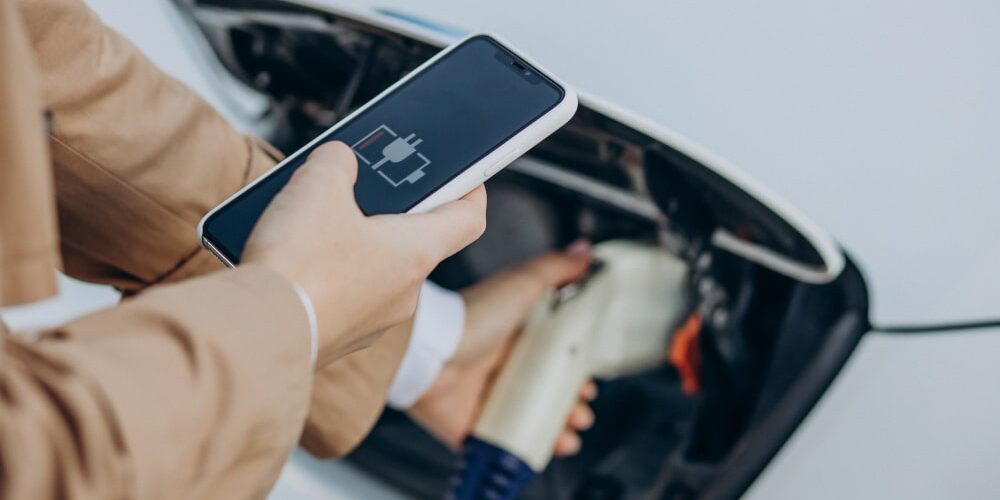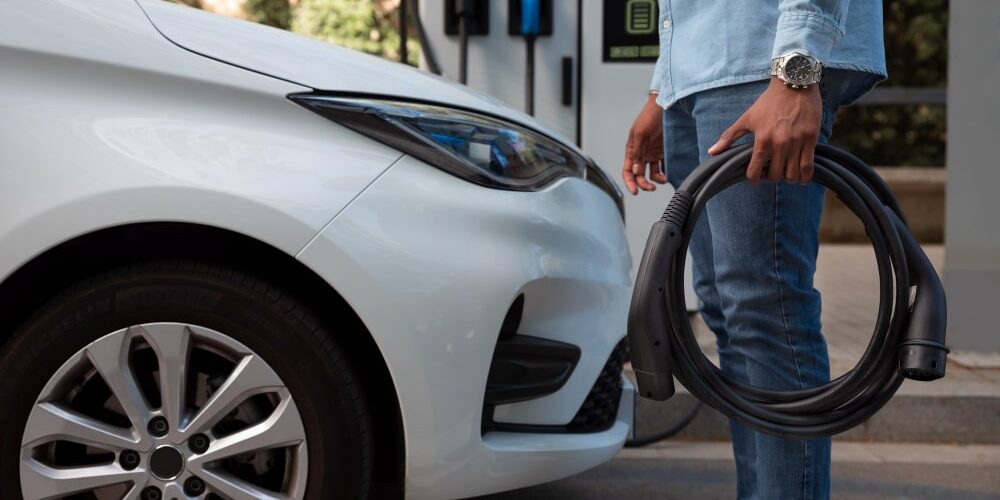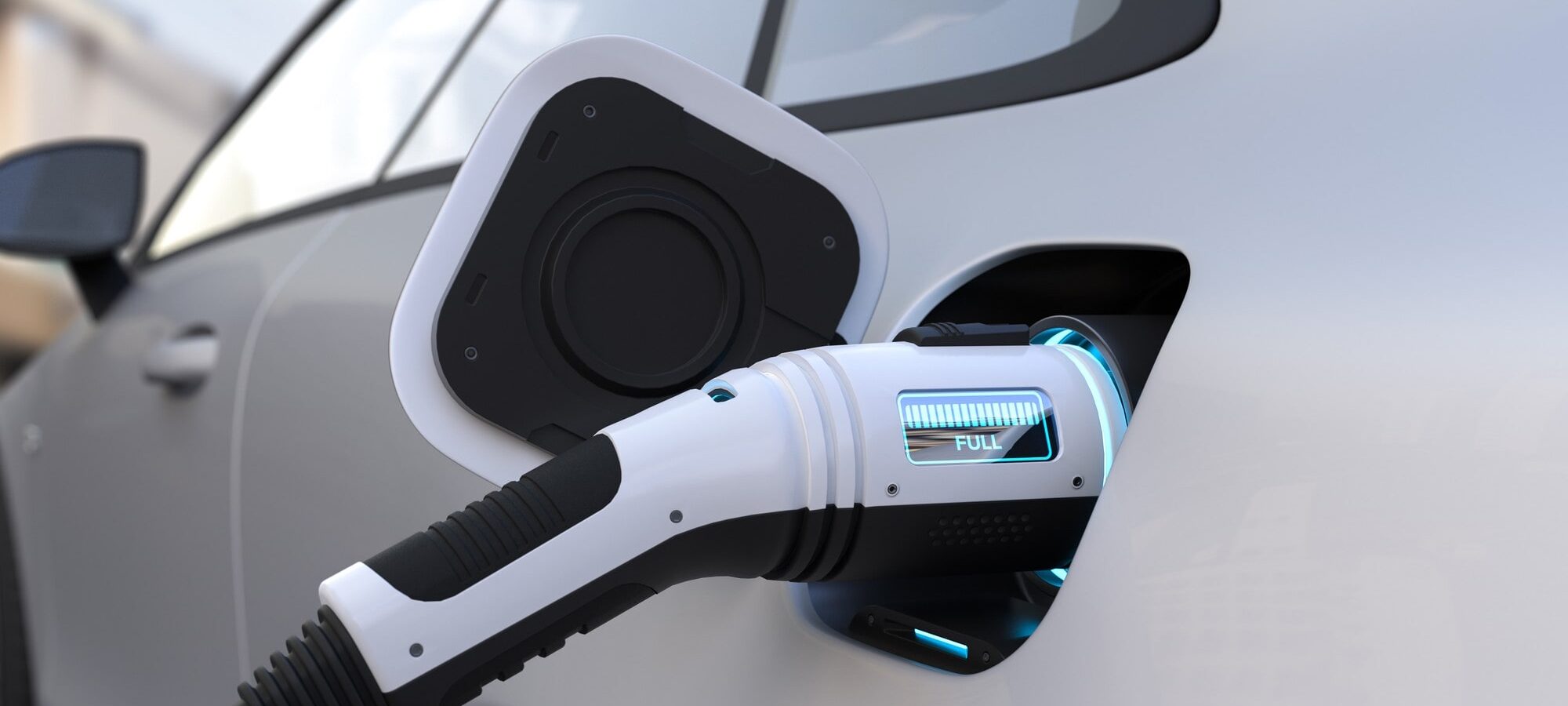As the world shifts towards sustainable mobility, the debate on the cost-effectiveness of electric cars has never been more relevant. Are electric cars cheaper to run than their petrol or diesel counterparts? In this post, we’ll delve into the intricacies of electric and petrol/diesel cars, exploring factors influencing running costs, charging options, insurance and depreciation, and environmental benefits, ultimately helping you decide if an electric car is the right choice.
Key Takeaways
- Comparing running costs, electric cars can be more cost-effective than petrol or diesel vehicles depending on fuel/energy prices, maintenance costs and taxes/incentives.
- Home charging is typically cheaper & more convenient than public stations. Government incentives are available to reduce the cost of installation.
- Electric cars offer environmental benefits and long-term savings if you have access to a home charger & take advantage of government grants.
Comparing Running Costs: Electric vs. Petrol/Diesel Cars

Switching to an electric vehicle requires a thorough understanding of how running and electricity costs differ from petrol or diesel cars. Factors like fuel and energy prices, maintenance costs, and taxes and incentives play a significant role in determining the overall cost-effectiveness of electric cars.
Fuel and Energy Prices
Fuel prices for petrol car/diesel cars have experienced an upward trend in recent years, with the cost of filling an average 55-litre family car reaching above £100 in June 2022. On the other hand, electric cars have comparatively lower energy costs. However, the recent energy crisis has significantly increased the cost of charging electric cars at home and public charging stations.
The average cost of charging an electric car using a rapid charger is £28.51. Considering current energy prices and tariffs is key in making an informed decision about electric cars’ fuel and energy costs.
Maintenance Costs
Electric cars generally have lower electric car maintenance costs compared to petrol or diesel cars due to their fewer moving parts and simpler systems. On average, electric vehicles cost around £103 to service, which is notably cheaper. The electric car’s service cost is also necessary, typically every two years, depending on the manufacturer.
The long-term financial benefits stemming from the lower maintenance costs of electric cars position them as an attractive alternative to traditional petrol or diesel cars, including diesel cars, and help electric car save money on expenses in the long run.
Taxes and Incentives
Taxes and incentives play a pivotal role in the running costs of electric and petrol/diesel cars. For instance, pure electric cars have the following benefits:
- Exemption from road tax
- Reduced congestion charges in cities like London
- The UK government offers a Plug-in Car Grant, providing up to £1,500 towards the cost of a new electric car
Moreover, company owners can deduct the total purchase price of a fully electric car from their annual profits, reducing their corporation tax bill.
These incentives make electric cars cheaper and more appealing, in some cases, to run than their petrol or diesel counterparts.
Charging Electric Cars: Home vs. Public Stations

One of the critical factors that influence the running costs of electric cars is the charging method. Charging electric cars at home is typically more cost-effective and convenient, whereas public charging stations offer greater flexibility at a higher cost.
Understanding the costs associated with charging electric cars necessitates an exploration of the differences between home and public charging stations.
Home Charging Costs and Installation
Installing a home charging point for an electric car typically costs between £800 and £1,500. However, the UK government offers the Electric Vehicle Homecharge Scheme, which covers up to 75% of the costs (capped at £350) for purchasing and installing a chargebox at home.
Charging an electric car at home is generally more cost-effective, with an average cost of £1.61, compared to £5.18 at a public charger. Charging an electric car at home benefits you from off-peak electricity prices, leading to further savings.
Public Charging Station Costs
The cost of charging an electric car at a public charge point can vary. This depends on the network and where the charge points are located. While some networks charge a flat rate, others charge based on the time spent charging or the electricity consumed.
Lidl is one example, where Pod Point rapid chargers are available at 65p/kWh. This would mean that in 30 minutes of charging, approximately £16 will be spent. This could provide up to 90 miles of range. Researching the costs of various charging networks and selecting one that aligns with your needs and budget is a necessary step.
Finding Charging Points
Locating electric car charging points can be a breeze with resources like Zap-Map and Carwow, which provide comprehensive maps and information on various charging networks and locations. Utilising these resources allows you to plan your charging stops more efficiently and make the most of your electric car’s range.
Electric Car Batteries: Lifespan, Replacement, and Recycling

The battery is a critical component of any electric car. Thus, its lifespan, replacement costs, and recycling options are essential considerations when evaluating the overall cost-effectiveness of electric cars. Most electric car batteries have a lifespan of 15 to 20 years when used in a car. Some manufacturers offer leasing options for EV batteries, where you pay a monthly fee instead of purchasing the battery outright.
Used electric car batteries can find new life through repurposing for stationary energy storage, breaking down into parts for reuse, or recycling for raw materials. A clear understanding of the battery’s life cycle and related costs helps evaluate the long-term savings and environmental footprint of driving an electric car.
Insurance and Depreciation: Electric vs. Petrol/Diesel Cars

Another aspect to consider when comparing electric cars and petrol or diesel car options is the difference in insurance costs and depreciation rates. Generally, electric cars tend to have higher insurance costs than petrol/diesel cars, although this can vary depending on the make and model of the vehicle. Factors such as the driver’s age, driving record, and the type of coverage purchased also influence insurance costs.
Regarding depreciation, electric cars generally have lower depreciation rates than petrol/diesel cars, although this can depend on the specific make and model. Factors, like the car’s make and model, age, and condition can influence electric car depreciation rates. Comprehending these costs aids in making an informed decision on the cost-effectiveness of an electric car.
Government Support and Incentives for Electric Vehicles

The UK government offers a range of grants and incentives to promote the purchase and use of electric vehicles. These include the Plug-in Vehicle Grant, which offers up to £3,500 off the cost of a new electric car, and the Electric Vehicle Homecharge Scheme, which provides financial assistance for installing a home charging point.
To further facilitate the deployment of a fast-charging network for electric vehicles, the UK government has committed £500 million over the next five years. Other financial incentives for electric cars include reduced vehicle excise duty and exemption from the London Congestion Charge. Government support measures can potentially increase the affordability and accessibility of electric vehicles to a broader audience.
Environmental Benefits of Electric Cars

One of the primary motivations for switching to electric cars is their environmental benefits. Electric cars produce fewer emissions than petrol or diesel cars, as they do not require burning fuel to generate power. As a result, electric cars can help reduce air pollution and contribute positively to the environment.
Moreover, electric cars can be charged using renewable energy sources like solar, wind, and hydroelectric power. By utilizing renewable energy for charging, electric cars can further reduce their environmental impact, eliminating the need for fossil fuels and improving air quality.
Making the Switch: Is an Electric Car Right for You?

Deciding whether an electric car is right for you requires careful consideration of various factors, including your driving habits, charging options, and potential long-term savings. If you primarily drive short distances and can access a home charging point, an electric car may be a suitable choice. Additionally, electric cars’ lower running costs and maintenance expenses can result in significant savings over time, making them an attractive alternative to petrol or diesel vehicles.
Government incentives, such as the Plug-in Vehicle Grant and the Electric Vehicle Homecharge Scheme, can also make electric cars more affordable for potential buyers. Considering your unique needs and circumstances is vital when balancing the pros and cons of electric cars, ensuring the best decision for your lifestyle and budget.
Summary
In conclusion, electric cars offer a range of benefits, including lower running costs, reduced emissions, and potential long-term savings. However, factors like charging options, insurance costs, and depreciation rates can vary and should be considered when deciding if an electric car is right for you. By evaluating these factors and taking advantage of government incentives, you can make a well-informed decision and potentially enjoy the cost-effective, eco-friendly benefits of driving an electric car.
Frequently Asked Questions
Is it cheaper to run electric cars in the UK?
Electric cars are much cheaper to run compared to fuel-powered cars, with average UK electricity prices of around 30p per kWh and 3.5 miles per kWh travelled. Charging your vehicle at home can make further savings, and there is also the potential for lower insurance and taxes.
Is it cheaper to charge an electric car at home?
Charging an electric car at home is typically much cheaper than filling up a petrol or diesel vehicle since electricity costs far less than fuel. Recharging overnight is often the most cost-effective way to go.
How much does it cost to charge an electric car compared to petrol?
Recharging an electric car costs much less than a petrol or diesel vehicle – as low as 3p per mile for home charging and up to 18p per mile for rapid public charging.
How long do electric car batteries typically last?
Electric car batteries typically last between 15 to 20 years.
Are government incentives available for purchasing electric cars and installing home charging points?
The UK government provides incentives such as the Plug-in Vehicle Grant and the Electric Vehicle Homecharge Scheme to promote electric car purchases and home charging point installations.
